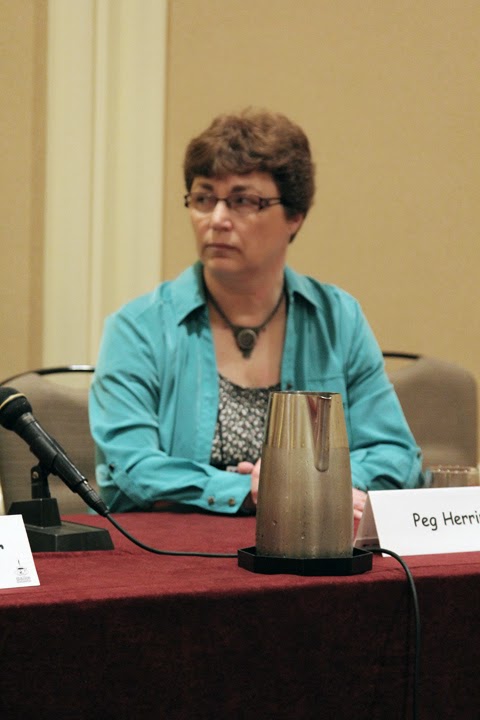Self-Publishing: A Few Thoughts on How Not To
There was an article in the Sunday paper yesterday about a young man who'd chose self-publishing. He had a cute idea for a children's book, and after being rejected by traditional publishers, he went to work and got it together himself.
And ordered 1000 copies of the book.
I wish I'd met him before that point in his brand-new career.
Here's my understanding of the scam some "helpful" publishers use to make money off earnest, unknowing writers: They "help" you publish your book, charging you every step of the way. They encourage you to buy a bunch of copies because "When this thing takes off, you're going to want them on hand!" They often charge the author full or nearly full price per book, so he gets no profit unless he jacks up the price, making dutiful friends and relatives shell out more than they should for a book in order to be supportive. Bookstores don't want them, because people don't want to pay big bucks for a book they've never heard of by an author who's equally obscure. These publishers promise fantastic promotion and personalized service, but the people I've spoken to who went that route were almost universally disappointed with the skimpy results they got from such promises.
In the end, the author has laid out a bunch of money, has books he can't unload, and is left with a bad feeling about publishing.
There are alternatives. Don't get me wrong: any sort of publishing involves some financial investment. You will have to pay for editing, and you should hire someone who'll tell you the truth. You might have to pay for cover art and set-up, and unless you're REALLY talented, you should. But there are publishing options that aren't designed to only make money for the publisher. One is Createspace. (I'm sure there are others; I'm just using what I know.) It's Amazon's company, so it was definitely created to make money, but they're pretty up front. There are no set-up fees to upload a manuscript and make a POD (print on demand) book, and they'll take your MS in Word .( I still pay a formatter to set the book up the way I want it. I think it looks better.) You can use an ISBN or they'll assign you their version of an identifying number. There's a minimal charge per book, and you can buy a few at a time, so you can order to supply your needs just a couple of weeks ahead.
Ingram now has IngramSpark, which charges a set-up fee but still charges a minimal fee/book and allows you to order a few at a time. (The fee is around $50.00) They have a calculator on the opening page of the site that figures how much you'll be charged/book, which is nice. The advantage to using Ingram is the book is then available to book stores, most of whom won't touch an Amazon book.
I was at a conference last year where they recommended publishing with both, which is what I did with the Maggie Pill books. That way they're available in all the Amazon outlets and also to larger entities, like bookstores and libraries, who order books in bunches through Ingram.
Both of these companies are fairly easy to use, though it takes some practice and I find that with Ingram I have to call and wait on hold for a long time rather than email with questions. No one reads the emails. There are lots of things you need to know about any sort of self-publishing venture, and I'm not going to go into all of it in this piece, but you need to read everything you can in order to decide exactly how you want to proceed.
This is my experience, and I freely admit that opinions will vary. I'm not getting rich in publishing, and I never intended to make a living with my writing. But
 I don't have 952 books mildewing in my garage that I've already paid for but can't sell.
I don't have 952 books mildewing in my garage that I've already paid for but can't sell.
And ordered 1000 copies of the book.
I wish I'd met him before that point in his brand-new career.
Here's my understanding of the scam some "helpful" publishers use to make money off earnest, unknowing writers: They "help" you publish your book, charging you every step of the way. They encourage you to buy a bunch of copies because "When this thing takes off, you're going to want them on hand!" They often charge the author full or nearly full price per book, so he gets no profit unless he jacks up the price, making dutiful friends and relatives shell out more than they should for a book in order to be supportive. Bookstores don't want them, because people don't want to pay big bucks for a book they've never heard of by an author who's equally obscure. These publishers promise fantastic promotion and personalized service, but the people I've spoken to who went that route were almost universally disappointed with the skimpy results they got from such promises.
In the end, the author has laid out a bunch of money, has books he can't unload, and is left with a bad feeling about publishing.
There are alternatives. Don't get me wrong: any sort of publishing involves some financial investment. You will have to pay for editing, and you should hire someone who'll tell you the truth. You might have to pay for cover art and set-up, and unless you're REALLY talented, you should. But there are publishing options that aren't designed to only make money for the publisher. One is Createspace. (I'm sure there are others; I'm just using what I know.) It's Amazon's company, so it was definitely created to make money, but they're pretty up front. There are no set-up fees to upload a manuscript and make a POD (print on demand) book, and they'll take your MS in Word .( I still pay a formatter to set the book up the way I want it. I think it looks better.) You can use an ISBN or they'll assign you their version of an identifying number. There's a minimal charge per book, and you can buy a few at a time, so you can order to supply your needs just a couple of weeks ahead.
Ingram now has IngramSpark, which charges a set-up fee but still charges a minimal fee/book and allows you to order a few at a time. (The fee is around $50.00) They have a calculator on the opening page of the site that figures how much you'll be charged/book, which is nice. The advantage to using Ingram is the book is then available to book stores, most of whom won't touch an Amazon book.
I was at a conference last year where they recommended publishing with both, which is what I did with the Maggie Pill books. That way they're available in all the Amazon outlets and also to larger entities, like bookstores and libraries, who order books in bunches through Ingram.
Both of these companies are fairly easy to use, though it takes some practice and I find that with Ingram I have to call and wait on hold for a long time rather than email with questions. No one reads the emails. There are lots of things you need to know about any sort of self-publishing venture, and I'm not going to go into all of it in this piece, but you need to read everything you can in order to decide exactly how you want to proceed.
This is my experience, and I freely admit that opinions will vary. I'm not getting rich in publishing, and I never intended to make a living with my writing. But
 I don't have 952 books mildewing in my garage that I've already paid for but can't sell.
I don't have 952 books mildewing in my garage that I've already paid for but can't sell.


Comments
Post a Comment